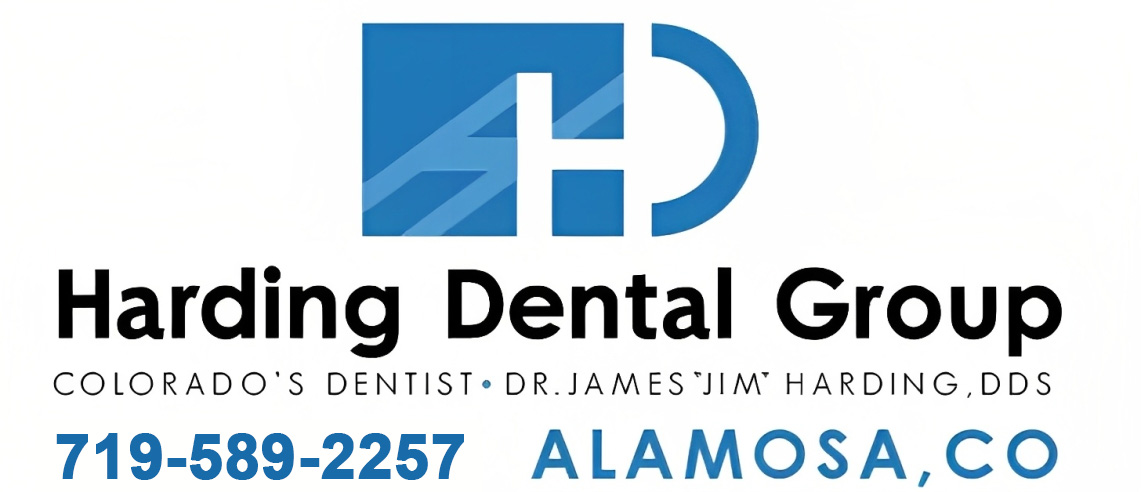If you want to learn more about how dental implants can help restore your smile, visit Harding Dental Group at 688 Del Sol Drive, Alamosa, CO 81101, or call (719) 589-2257. We look forward to helping you achieve your dream smile.

The Ultimate Solution: Why Dental Implants are the Best Choice for Seniors
As we age, maintaining our dental health becomes more crucial than ever. For seniors, a beautiful smile isn't just about aesthetics; it's tied to overall well-being and confidence. Missing teeth can impact not only how we eat but also how we interact with the world around us. This is where dental implants come in—not just as a solution for tooth loss but as a pathway to renewed vitality and comfort. If you’re exploring your options for replacing missing teeth, understanding why dental implants are particularly beneficial for seniors will help guide your decision-making process. Let’s dive into the transformative power of these remarkable solutions tailored for those golden years!
What Are Dental Implants And How Do They Work?
Dental implants are artificial tooth roots designed to provide a strong foundation for replacement teeth. Made of titanium, they are surgically placed into the jawbone, where they fuse with the bone in a process called osseointegration.
Once healed, these sturdy implants support crowns or dentures, restoring both function and aesthetics. They mimic natural tooth roots closely, offering stability that other options lack.
The procedure typically involves an initial consultation, surgical placement of the implant, and follow-up appointments to ensure proper healing. Over time, patients enjoy improved oral health and enhanced quality of life.
Many seniors find dental implants particularly beneficial as they can significantly improve chewing ability and speech clarity. Plus, they don’t require special cleaning routines like removable dentures do. This makes them not only practical but also easy to maintain over time.
The Benefits Of Dental Implants For Seniors
Dental implants offer numerous benefits for seniors, enhancing both function and quality of life.
- One major advantage is their ability to restore chewing efficiency. Seniors can enjoy a wider variety of foods without discomfort.
- Another significant benefit is the natural appearance they provide. Implants mimic the look and feel of real teeth, boosting confidence in social situations. This aesthetic enhancement can lead to improved mental well-being.
- Moreover, dental implants prevent bone loss in the jaw, which often occurs after tooth loss. By stimulating the bone, they maintain facial structure and support overall oral health.
- Seniors also appreciate that implants require minimal maintenance compared to dentures or bridges. With proper care, they are designed to last many years—often a lifetime—making them a long-term solution worth considering for anyone seeking reliable tooth replacement options.
Comparing Dental Implants To Other Tooth Replacement Options
When it comes to tooth replacement, dental implants stand out among other options. Unlike dentures, which can slip and require adhesive for stability, implants are securely anchored in the jawbone. This integration provides a natural feel that enhances comfort.
Bridges may seem like an easy fix, but they come with their own set of challenges. They often rely on neighboring teeth for support, which can compromise those healthy structures over time. Implants don’t affect adjacent teeth and help preserve bone density.
Moreover, while removable dentures may offer affordability initially, they tend to have recurring costs related to maintenance and replacements. Dental implants involve a higher upfront investment but typically last much longer with proper care.
Seniors looking for longevity and function should weigh these factors carefully when considering their options. It's essential to choose the solution that best aligns with individual lifestyle needs and health conditions in Alamosa, CO. Contact us to learn more.
Common Misconceptions About Dental Implants For Seniors
Many seniors hesitate to consider dental implants due to misconceptions surrounding the procedure. One common myth is that age alone disqualifies someone from receiving implants. In reality, a healthy jawbone and general health are more critical factors than chronological age.
Another misconception is that the surgery will be painful. While some discomfort can occur, advancements in sedation techniques make the process manageable and often less invasive than anticipated.
Some believe that dental implants require extensive maintenance or are prone to failure. However, with proper care, including regular dental check-ups and good oral hygiene practices, they can last for many years—typically longer than dentures.
There's confusion about whether insurance covers them. Although not universal, many plans do offer some coverage for dental implants. It's worth checking your policy or discussing it with your dentist in Alamosa, CO; you might be pleasantly surprised by what’s available.
Cost And Insurance Coverage For Dental Implants
The cost of dental implants can vary widely. Several factors play a role, including the dentist’s experience and the complexity of your case. On average, seniors might expect to pay anywhere from $3,000 to $4,500 per implant.
Insurance coverage for dental implants often depends on the policy. Many plans view them as cosmetic procedures and may not cover all expenses. However, some insurers do offer partial reimbursements or include them in major restorative benefits.
It’s wise for seniors to check their specific insurance plan details and speak with their provider about options available for dental implants in Alamosa, CO. Some financing solutions can bridge the gap if insurance falls short.
Additionally, many dental offices provide payment plans tailored for seniors. This flexibility helps make quality oral health accessible without overwhelming financial strain.
Maintaining And Caring For Dental Implants In Older Age
Maintaining dental implants in older age is crucial for longevity and health.
- Regular oral hygiene practices, such as brushing and flossing, remain essential. Use a soft-bristled toothbrush to avoid damaging gums.
- Routine dental visits are vital. Schedule check-ups at least twice a year. Your dentist can monitor the condition of your implants and ensure everything is functioning well.
- Be mindful of your diet too. A balanced intake supports overall oral health. Avoid hard or sticky foods that could put unnecessary pressure on your implants.
- Don't forget about hydration! Drinking plenty of water helps wash away food particles and keeps your mouth moist, which is important for gum health.
- Address any discomfort immediately with professional help rather than waiting it out. Early intervention often leads to better outcomes for maintaining those precious smiles into golden years.
Conclusion
Dental health is crucial for seniors, as it significantly impacts overall well-being. With age, maintaining a healthy smile can become challenging due to various factors like tooth loss and gum disease. Dental implants present an effective solution that not only restores functionality but also enhances the quality of life.
These artificial tooth roots are designed to offer stability and longevity, making them a popular choice among older adults seeking reliable dental solutions. Unlike dentures or bridges, dental implants integrate with the jawbone through a process called osseointegration, providing a secure fit that feels natural.
Seniors can enjoy numerous benefits from dental implants. They improve chewing capability, boost confidence in social situations, and promote better oral hygiene by preventing bone loss in the jaw. Moreover, their durability means they often require less maintenance than other options.
When comparing dental implants to traditional replacements like dentures or bridges, it’s clear why many prefer this option. Implants eliminate concerns about slippage while eating and speaking—common issues faced with removable dentures—and they do not rely on adjacent teeth for support as bridges do.
Misconceptions abound regarding dental implants in older populations; some believe age disqualifies them from treatment or that recovery is overly burdensome. However, advancements in dentistry have made implant procedures safe and accessible for seniors of varying health statuses.
Cost remains a significant factor when considering this type of procedure. While upfront expenses might seem high compared to alternatives like dentures or partials, it’s essential to recognize the long-term advantages both financially and emotionally. Many insurance plans now cover part of the costs associated with getting implants in Alamosa, CO.
Caring for these durable structures involves regular check-ups just like natural teeth, along with good oral hygiene practices at home—something easily manageable even into advanced years.
Choosing dental implants could be one of the best decisions seniors make regarding their oral health.
Location
688 Del Sol Drive,
Alamosa, CO 81101
Office Hours
MON - WED9:00 am - 4:00 pm
THU8:00 am - 4:00 pm
FRI8:00 am - 12:00 pm
SAT - SUNClosed







comments